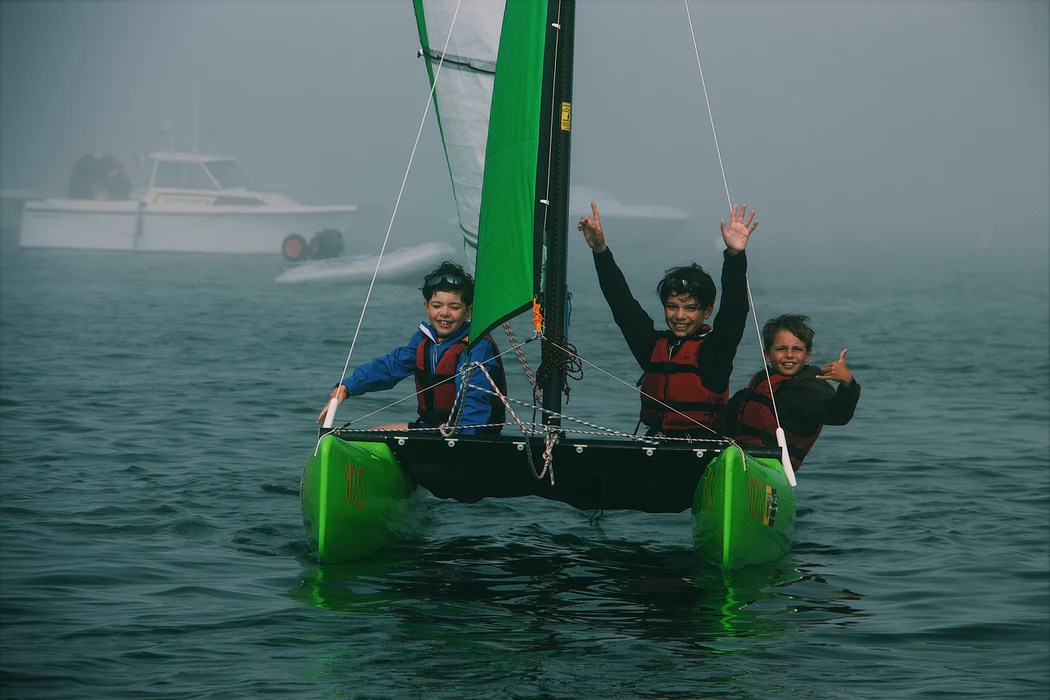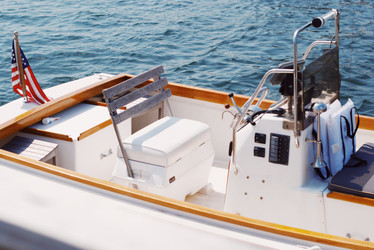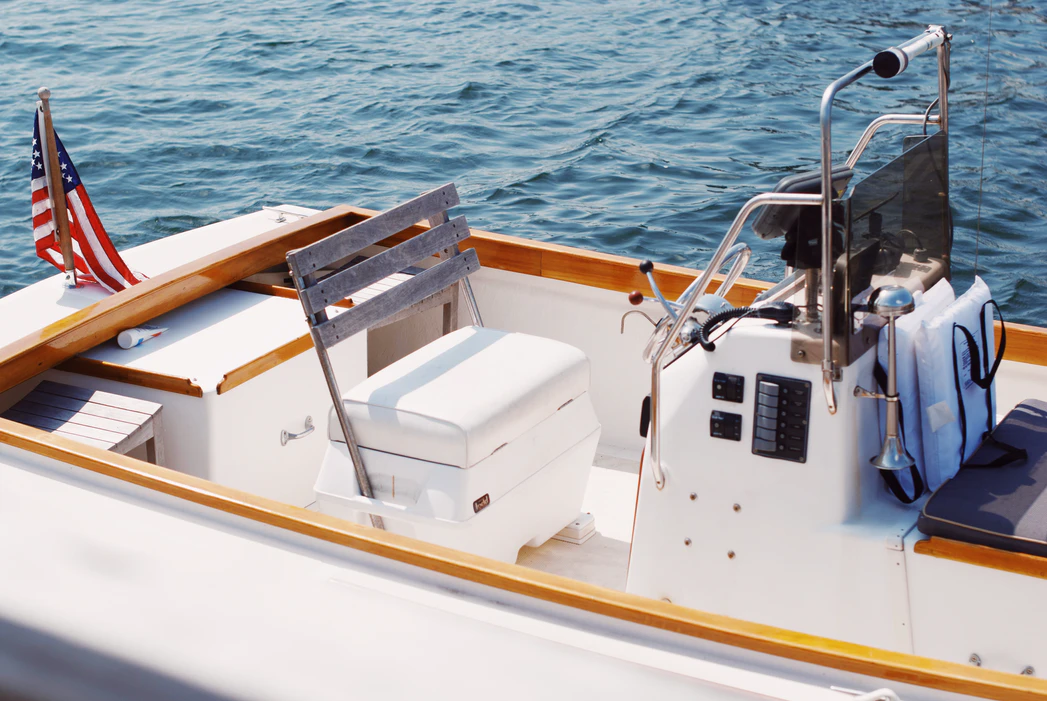Michigan Boating Laws: Everything You Need To Know
Posted by Wet Sounds on 19th Jan 2022
The state of Michigan has numerous waterways, many of which are ideal places for all sorts of boating and watercraft sports. Whether you're taking your boat out for a cruise or you're heading to the lake for a day of fishing, you need to be aware of Michigan boating laws. Knowing all the rules and regulations that the state has in place, for your safety and the safety of others on the water, will ensure that you and everyone else make the most of boating in this beautiful state.
What Are Michigan Boating Laws?
Image via Unsplash by Aubrey Odem
To keep you, your passengers, and other boaters safe, Michigan has put some basic laws into place regarding boating and using the state's waterways. When you understand and follow these regulations, you'll not only be safer out on the water, but you'll also help to make sure that Michigan's waterways can continue to be used for boating long into the future.
From your personal watercraft (PWC) to your speed boat, the boating laws in Michigan exist to keep every boater safe. Let's go over the boating regulations that Michigan has in place, so you can take to the waters with the right knowledge.
Operation of Boats and PWC by Minors

Image via Unsplash by Mael BALLAND
In Michigan, children under the age of 12 can legally operate a boat as long as the motor has no more than six horsepower. If a person 12 years or younger wants to operate a boat with up to 35 horsepower, they need to obtain a boating safety certificate and have someone else who's at least 16 years old on board supervising.
Per the 2021 Michigan Department of Natural Resources (MDNR) handbook, anyone born on or after July 1, 1996, is allowed to operate a boat with a valid boating safety certificate, while anyone born before this date is allowed to operate a boat without any restrictions.
A PWC has its own set of rules when it comes to its operation. Minors who are under 14 years of age cannot operate a PWC, and if a minor is 14 or 15 years old, they must have a boating safety certificate and either be accompanied by someone at least 21 years old or within 100 feet of someone at least 21 years old to operate the PWC. When a minor reaches the age of 16, they can operate a PWC if they have a boating safety certificate.
According to the 2021 MDNR handbook, anyone born on or before December 31, 1978, has no restrictions when operating a PWC.
Alcohol and Drug Use on Boats
Just like when driving a vehicle, it's illegal to operate a boat while under the influence of drugs or alcohol. No matter whether the drugs are legal or illegal, you may not operate a boat while taking any substances. Allowing anyone else who may be under the influence of drugs or alcohol to operate your boat is also prohibited. It's important to note that by taking to the waterways in your boat, you're legally consenting to be tested for drugs and alcohol if a law enforcement officer deems it necessary.
Safety Equipment on Boats
You're required to have certain safety equipment on your boat according to Michigan boating regulations. The most important safety equipment you need to have are personal flotation devices (PFD). It's required that every boat has at least one PFD per person riding on the boat, and all of the PFDs need to be the proper size and fit for the people wearing them. If your boat is less than 16 feet long, you can opt to have a throwable PFD instead of a wearable one.
Any child 6 years of age or younger must wear their PFD at all times while onboard your boat and each PFD must be readily accessible for everyone else aboard. In addition, all PFDs need to be serviceable and in proper working condition.
If you might have your boat on the water during low-light conditions, you need to be sure that you have navigation lights that function. The type of lights, the color of the lights, and the positioning of the lights will vary depending on how your boat is powered, the length of your boat, and whether or not your boat is moving. Fire extinguishers, sound-producing devices, a visual distress signal, and a ventilation system are also required for boats in Michigan.
Pulling or Towing With Boats

Image via Unspalsh by Courtnie Tosana
Water skiing, wakeboarding, and pulling a flotation device behind your boat are all fun activities that many people enjoy, but these activities can quickly turn from fun to dangerous if not done properly. Michigan boat rules state that no person shall be pulled behind a boat from one hour after sunset to one hour before sunrise. From sunset to 8 a.m., a PWC cannot pull anyone.
You also must have one person, other than the driver, in the boat at all times when pulling someone behind your boat. This person should have eyes on the person being towed at all times.
Boat Navigation

Image via Unsplash by Anna Church
Before getting your boat out on the water, you need to be aware of some basic boating navigation rules and etiquette for your safety and enjoyment. Make sure you always maintain a safe speed and distance from other boats. Watch out for other boats on the water because not everyone is going to be as well-versed as you are in the Michigan boating laws. Power boats are always required to give way to non-powered boats. Sailboats must give way to unmanned boats, boats with limited maneuverability, and commercial fishing vessels.
At night, you need to know about and watch for navigation lights on other boats. If you overtake another boat, always pass on the port, or left, side. This is also the case when you're approaching another boat head on. If another vessel is approaching you on your port side, you should hold your course and speed, while the boat approaching on its starboard, or right, side, should slow down, stop, or put their vessel in reverse to avoid an accident.
Boating is a great way to enjoy nature, especially when the weather is nice. Having this information about some of the rules and regulations Michigan has in place for boating safety will ensure you have a great time out on the water. To enhance your boating experience, consider adding some tower speakers from Wet Sounds to your boat. They'll make your favorite tunes sound even better when you're cruising around on lakes in Michigan.


